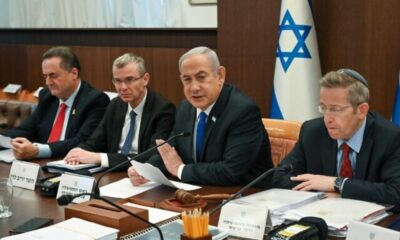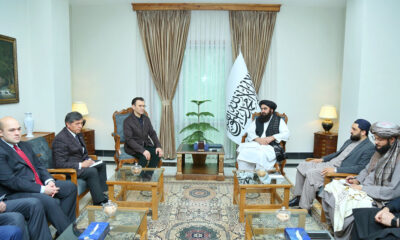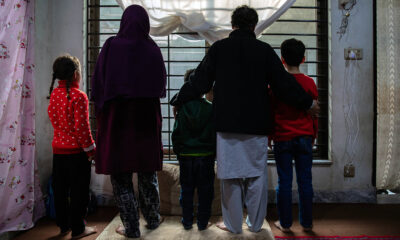Regional
Iran, US on verge of prisoner swap under Qatar-mediated deal
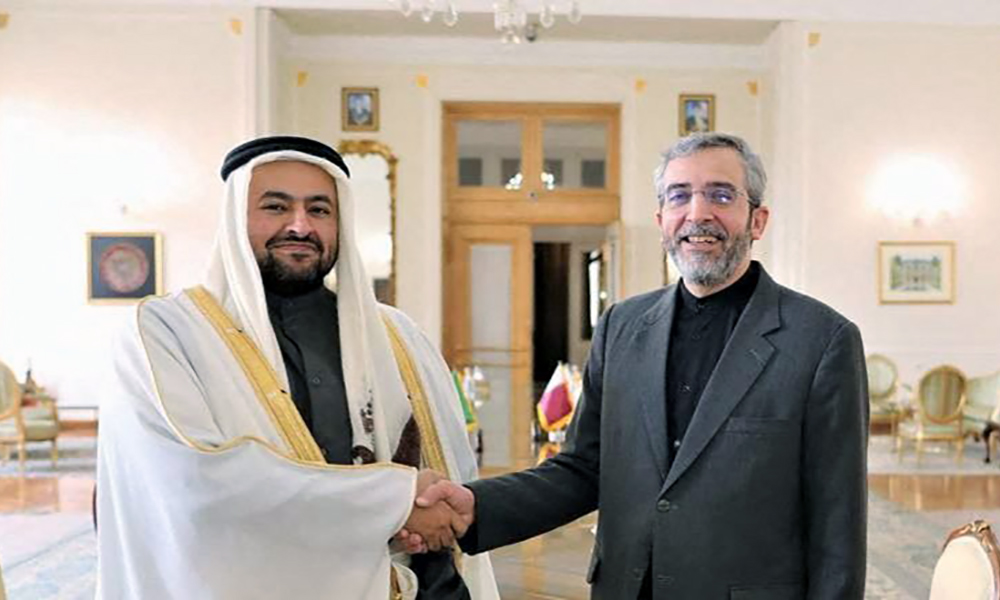
When $6 billion of unfrozen Iranian funds are wired to banks in Qatar as early as next week, it will trigger a carefully choreographed sequence that will see as many as five detained U.S. dual nationals leave Iran and a similar number of Iranian prisoners held in the U.S. fly home, according to eight Iranian and other sources familiar with the negotiations who spoke to Reuters.
As a first step, Iran on Aug. 10 released four U.S. citizens from Tehran’s Evin prison into house arrest, where they joined a fifth, who was already under house arrest. Later that day U.S. Secretary of State Antony Blinken called the move the first step of a process that would lead to their return home.
They include businessmen Siamak Namazi, 51, and Emad Sharqi, 59, as well as environmentalist Morad Tahbaz, 67, who also holds British nationality, the U.S. administration has said. The Tahbaz and Shargi families did not respond to requests for comment. A lawyer for the Namazi family declined to comment.
The identities of the fourth and fifth Americans, one of whom according to two sources is a woman, have not been disclosed. Reuters couldn’t establish which Iranian prisoners, in turn, would be swapped by the U.S.
At the centre of the negotiations that forged this deal between the superpower which Iran brands the “Great Satan” and the Islamic Republic which Washington calls a state sponsor of terrorism is the tiny but hugely rich state of Qatar.
Doha hosted at least eight rounds of talks involving Iranian and U.S. negotiators sitting in separate hotels speaking via shuttle diplomacy, a source briefed on the discussions said, with the earlier sessions focused mainly on the thorny nuclear issue and the later ones on the prisoner releases, Reuters reported.
Doha will implement a financial arrangement under which it will pay banking fees and monitor how Iran spends the unfrozen cash to ensure no money is spent on items under U.S. sanctions, and the prisoners will transit Qatar when they are swapped, according to three of the sources.
“Iran initially wanted direct access to the funds but in the end agreed to having access via Qatar,” said a senior diplomat. “Iran will purchase food and medicine and Qatar will pay directly.”
Reuters pieced together this account of previously unreported details about the extent of Qatari mediation of the secret talks, how the deal unfolded and the expediency that motivated both parties to clinch the prisoner swap deal. Reuters interviewed four Iranian officials, two U.S. sources, a senior Western diplomat, a Gulf government adviser and the person familiar with the negotiations.
All of the sources requested anonymity because of the sensitivity of a deal which hasn’t been fully implemented.
A State Department spokesperson said the U.S. was not ready to announce the exact timing of the prisoner release. The Department also declined to discuss the details of what the spokesperson termed “an ongoing and highly sensitive negotiation.”
The U.S. administration has not commented on the timing of the funds transfer. However, on Sept 5, South Korean foreign minister Park Jin said efforts were under way to transfer Iran’s funds.
“The U.S.-Iran relationship is not one characterized by trust. We judge Iran by its actions, nothing else,” the State Department spokesperson added.
Washington consented to the movement of Iranian funds from South Korea to restricted accounts held by financial institutions in Qatar, but no money is going to Iran directly, the spokesperson added.
Qatar’s Ministry of Foreign Affairs did not respond to Reuters’ request for comment on the details of negotiations, Qatar’s role in the talks or the terms of the final agreement.
Iran’s foreign ministry and its U.N. mission did not respond to detailed questions regarding this story, read the report.
The sources’ account of the negotiation shows how the deal sidestepped the main U.S.-Iran dispute over Iran’s nuclear aims, culminating in a rare moment of cooperation between the long-time adversaries, at odds on a host of issues from Iran’s nuclear program to the U.S. military presence in the Gulf.
Ties between the U.S. and Iran have been at boiling point since Donald Trump quit a nuclear deal with Iran as U.S. president in 2018. Reaching another nuclear deal has gained little traction since then, as President Joe Biden prepares for the 2024 U.S. election.
The State Department spokesperson also said there had been no change in Washington’s overall approach to Iran, “which continues to be focused on deterrence, pressure and diplomacy.”
Once the funds are transferred, they will be held in restricted accounts in Qatar, and the U.S. will have oversight as to how and when these funds are used, the State Department spokesperson added.
The potential transfer has drawn Republican criticism that Biden, a Democrat, is in effect paying ransom for U.S. citizens. But Blinken told reporters on Aug 10 the deal does not mean that Iran would be getting any sanctions relief, explaining that Washington would continue to push back “resolutely against Iran’s destabilising activities in the region”.
The Qatari-led mediation gained momentum in June 2023, said the source briefed on the discussions, adding at least eight rounds of talks were held since March 2022, with earlier rounds devoted mainly to the nuclear issue and later ones to prisoners.
“They all realised that nuclear (negotiation) is a dead end and shifted focus to prisoners. Prisoners is more simple. It’s easy to get and you can build trust,” he said. “This is when things got serious again.”
The Iranian, diplomatic and regional sources said that once the money reaches Qatar from South Korea via Switzerland, Qatari officials will instruct Tehran and Washington to proceed with the releases under the terms of a document signed by both sides and Qatar in late July or early August. Reuters has not seen the document.
The transfer to banks in Qatar is expected to conclude as early as next week if all goes to plan, the source briefed on the talks said. Reuters was unable to identify the banks involved.
“American prisoners will fly to Qatar from Tehran and Iranian prisoners will fly from the U.S. to Qatar, and then be transferred to Iran,” the source briefed on the talks told Reuters.
According to two Iranian insiders, the source briefed on the negotiations and the senior Western diplomat, the talks’ most complex part was arranging a mechanism to ensure transparency in the money transfer and respect for U.S. sanctions. The $6 billion in Iranian assets – the proceeds of oil sales – were frozen under sweeping U.S. oil and financial sanctions against Iran. Then president Trump in 2018 reimposed the sanctions when he pulled Washington out of a deal under which Iran had restricted its nuclear program.
Issues discussed included how to ensure Iran only spent the money on humanitarian goods and securing guarantees from Qatar on its monitoring of the process.
“To salvage the negotiations from collapse, Qatar pledged to cover the banking fees for the funds’ transfer from Seoul to Switzerland, and subsequently to Qatari banks, while also taking on the responsibility of expense oversight,” an Iranian insider briefed about the talks told Reuters.
The central bank governors of Iran and Qatar met in Doha on June 14 to discuss the funds transfer, a second Iranian insider and the source briefed on the talks said.
According to Reuters the Central Bank of Iran and the Qatar central bank declined to comment.
The talks were led by U.S. Special Envoy for Iran Robert Malley — now on unpaid leave because his security clearance is under review — and by U.S. Deputy Special Envoy Abram Paley and Iran’s chief nuclear negotiator, Ali Bagheri Kani, said one Iranian official, two sources briefed on the negotiations and the Western diplomat.
Mehdi Safari, Iran’s deputy foreign minister for economic affairs, joined the Iranian delegation at two meetings in Qatar for talks on the funds transfer, one senior Iranian diplomat told Reuters. Qatari Minister of State at the Foreign Ministry Mohammed Al-Khulaifi was the go-between mediator.
Malley declined to comment. Paley, Kani and Al Khulaifi could not be reached directly for comment.
Regional
Arab states condemn Israel’s move to expand powers in occupied West Bank
Israel’s security cabinet approved measures that will make it easier for Jewish settlers to purchase land in the West Bank and grant Israeli authorities greater powers in areas under Palestinian control.
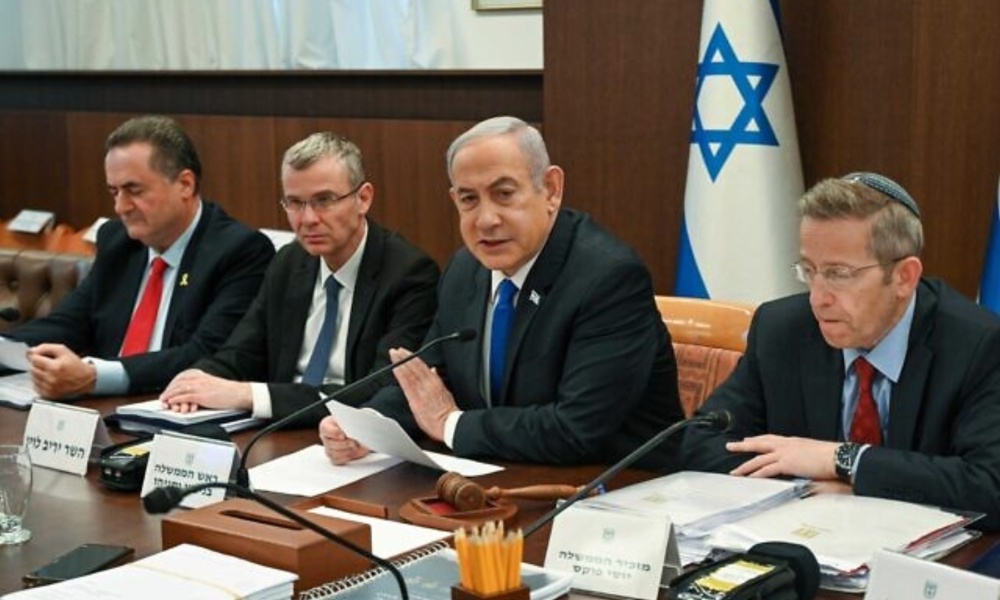
Saudi Arabia, Jordan and the United Arab Emirates led regional condemnation on Monday of Israel’s decision to ease settlement expansion and broaden its authority across the occupied West Bank, a move critics say amounts to de facto annexation.
Israel’s security cabinet approved measures on Sunday that will make it easier for Jewish settlers to purchase land in the West Bank and grant Israeli authorities greater powers in areas nominally under Palestinian control, Reuters reported citing two senior Israeli ministers.
Finance Minister Bezalel Smotrich, an ultranationalist figure in Prime Minister Benjamin Netanyahu’s coalition, said the decisions would “continue to kill the idea of a Palestinian state.”
In a joint statement, foreign ministers from several Middle Eastern and Muslim-majority countries — including Egypt and Turkey — denounced the measures as illegal under international law and warned they would undermine prospects for a two-state solution and regional stability.
Jordan, Egypt, the UAE and Turkey all maintain diplomatic ties with Israel, while Saudi Arabia has said it will not normalise relations without the establishment of a Palestinian state.
Most countries view the West Bank, occupied by Israel since 1967, as the core of a future Palestinian state.
Israeli Defence Minister Israel Katz and Smotrich said the cabinet had repealed a pre-1967 Jordanian-era law that kept land registries confidential and scrapped a permit requirement for land purchases, steps they said would simplify transactions for Jewish buyers.
Settlement watchdog Peace Now said the move violated international law and marked a significant step toward annexation. “This treats the West Bank as normal Israeli territory rather than occupied land,” said Hagit Ofran of the group.
The cabinet also expanded Israeli enforcement powers over water use, archaeological sites and environmental issues into Areas A and B of the West Bank — zones that, under the 1993 Oslo accords, are under Palestinian or joint control. Peace Now said the changes could pave the way for wider demolitions of Palestinian property and further restrictions on Palestinian development.
U.N. Secretary-General Antonio Guterres expressed “grave concern,” warning the measures were eroding the viability of a two-state solution, his spokesperson said.
In Hebron, Palestinians said the decisions would accelerate settlement growth and home demolitions. “It becomes easier to confiscate land, expand settlements and demolish Palestinian homes,” said Issa Amr of the group Youth Against Settlements.
Regional
Iran arrests at least four reform front politicians
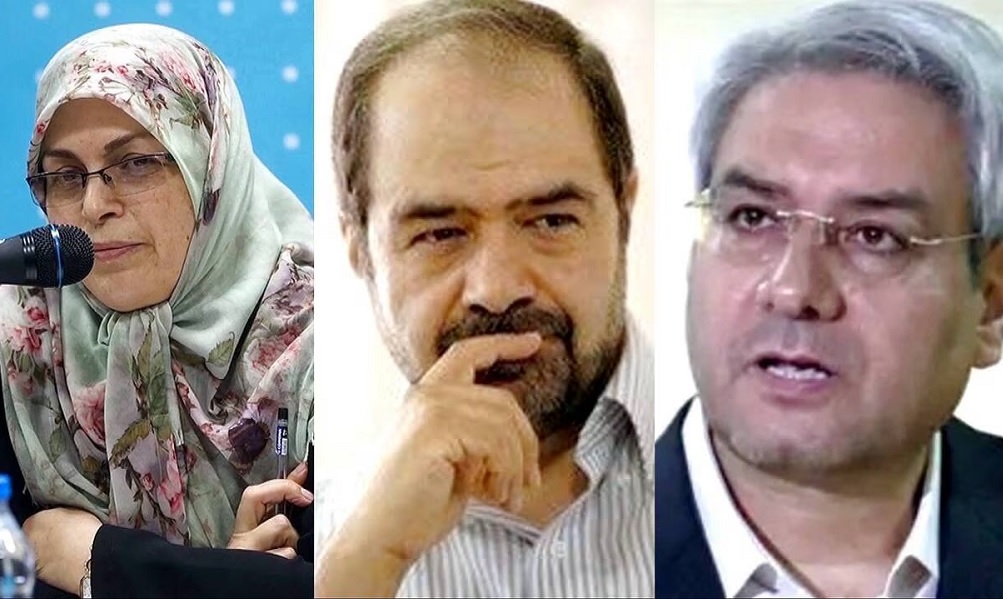
The Islamic Iran Nation’s Union Party sought the release of secretary-general Azar Mansouri, the Shargh newspaper said on Monday, after her arrest along with other members of the Reform Front, an umbrella body of Iranian reformists and moderates.
A campaign of mass arrests and intimidation has led to the arrests of thousands as authorities seek to deter further protests after last month’s crackdown on the bloodiest unrest since the 1979 Islamic Revolution.
On Sunday, state media said three senior figures from Iran’s Reform Front were arrested, among them Ebrahim Asgharzadeh, Mohsen Aminzadeh, and Azar Mansouri, who acts as the front’s head, according to Reuters.
Shargh said at least two more Reform Front members were asked to report to the prosecutor’s office in Tehran’s Evin prison on Tuesday.
The Reform Front’s spokesperson, Javad Emam, was also arrested, Mansouri’s lawyer, Hojjat Kermani, said on Monday, adding that it was unclear what charges faced those detained.
“We basically don’t know what caused these arrests, because the Reform Front has not yet issued a statement about the recent events (protests),” Kermani told the Iranian Labour News Agency (ILNA). “Individuals may have commented on their own.”
On Sunday, the judiciary’s media outlet Mizan said “four important political elements supporting the Zionist (regime) and the United States” were indicted, but gave no details.
Tehran has blamed unrest-related violence on “rioters and armed terrorists” it says were backed by its key enemies, Israel and the United States.
Past Reform Front statements have been highly critical of authorities. After the 12-day war against Israel, its members warned that “incremental collapse” awaited the country if it did not adopt fundamental reforms.
Kermani said the recent arrests were not related to a judicial case launched against the Front after that statement, however.
Regional
Eight killed in explosion in northern China, state media says

An explosion at a small biotech company in northern China early Saturday killed eight people, China’s state media reported on Sunday.
The explosion occurred in Shuoyang in the Shanxi province in the early morning of Saturday, state media reported, according to Reuters.
The legal representative of Jiapeng Biotechnology has been detained and the city has set up an accident investigation team, Xinhua News Agency reported.
The firm is located in a mountain hollow and dark yellow smoke was seen billowing from the accident site, Xinhua said.
Reuters was not able to contact the company, which does not maintain a website. The cause of the reported explosion was not immediately clear.
Founded in June 2025, Jiapeng Biotechnology conducts research on animal feed, coal products and building materials, according to its corporate registration.
-

 Latest News3 days ago
Latest News3 days agoAfghanistan to grant one- to ten-year residency to foreign investors
-

 Sport4 days ago
Sport4 days agoIndonesia shock Japan to reach historic AFC Futsal Asian Cup final
-

 Sport3 days ago
Sport3 days agoIran clinch AFC Futsal Asian Cup 2026 in penalty shootout thriller
-

 Latest News3 days ago
Latest News3 days agoAfghanistan says Pakistan is shifting blame for its own security failures
-

 International Sports2 days ago
International Sports2 days agoWinter Olympics gain momentum as medal table takes shape
-

 Latest News5 days ago
Latest News5 days agoAfghanistan facing deepening hunger crisis after US Aid Cuts: NYT reports
-
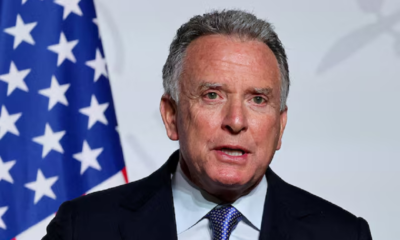
 World5 days ago
World5 days agoUS, Ukraine, Russia delegations agree to exchange 314 prisoners, says Witkoff
-

 Latest News3 days ago
Latest News3 days agoTraffic police receive new cars








